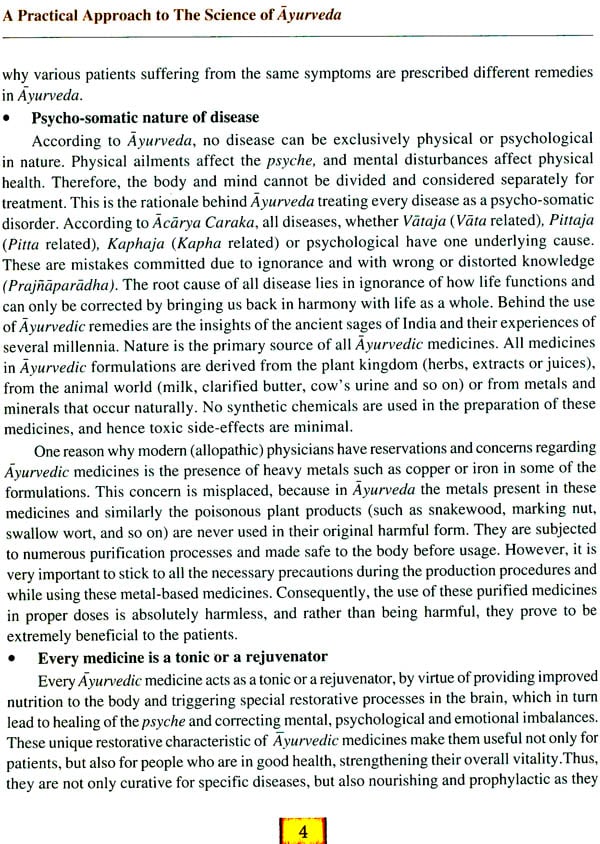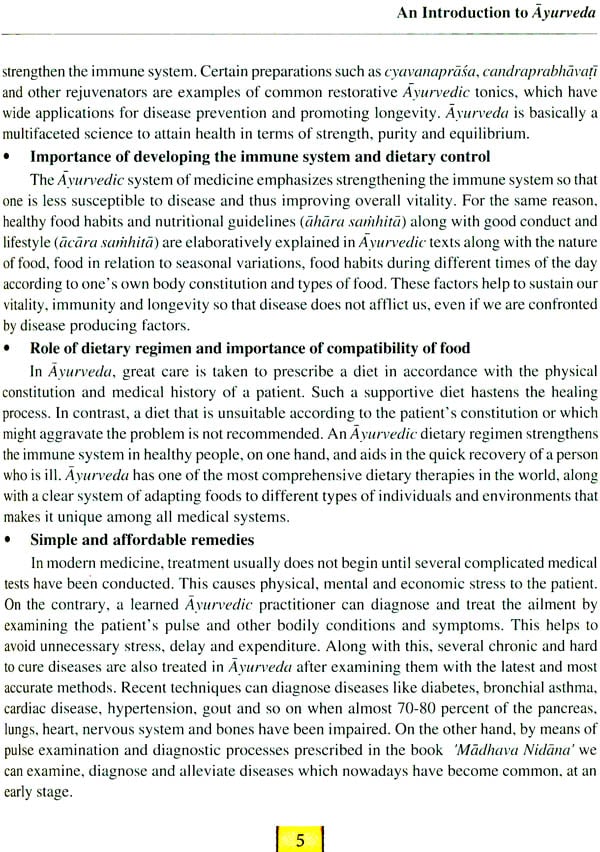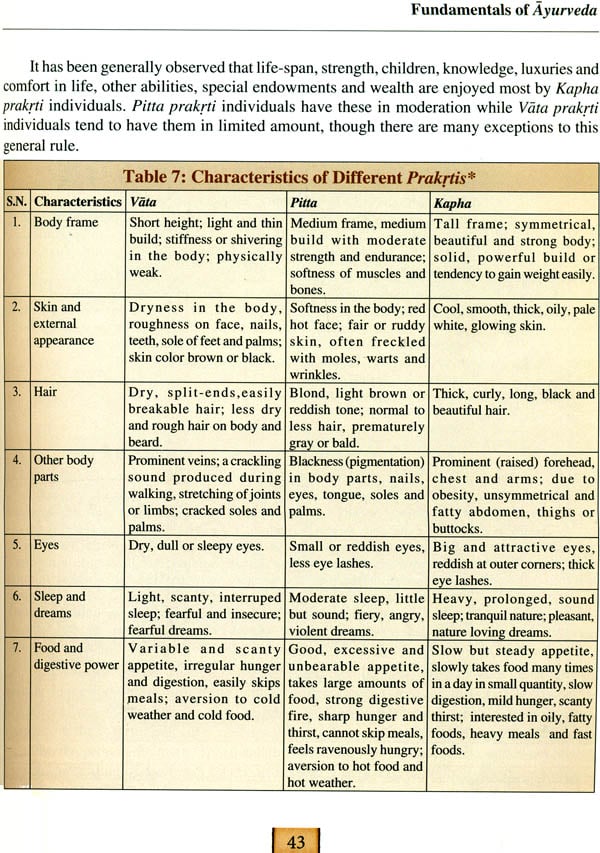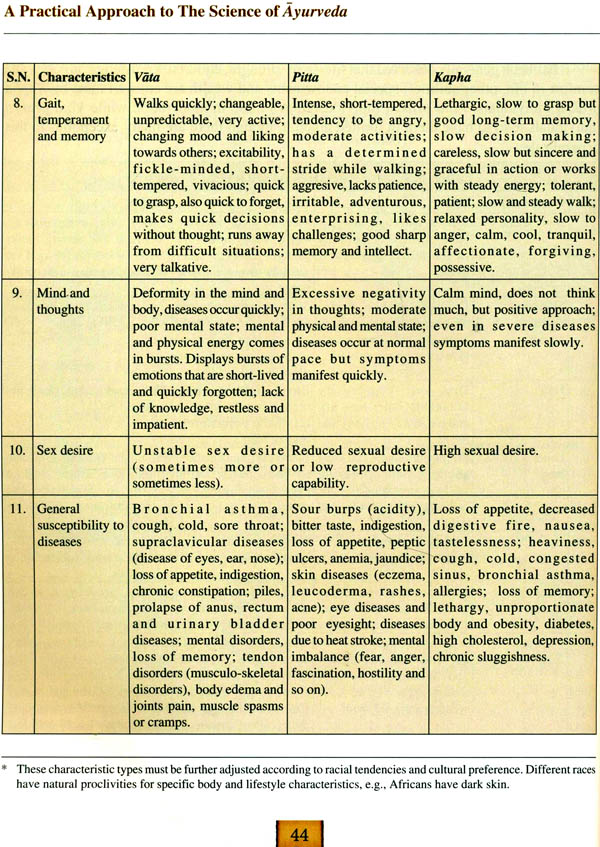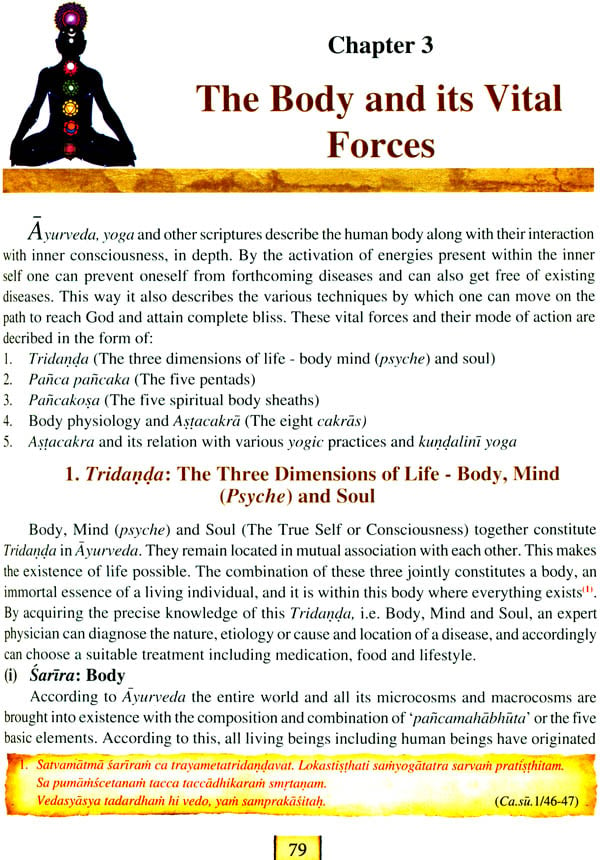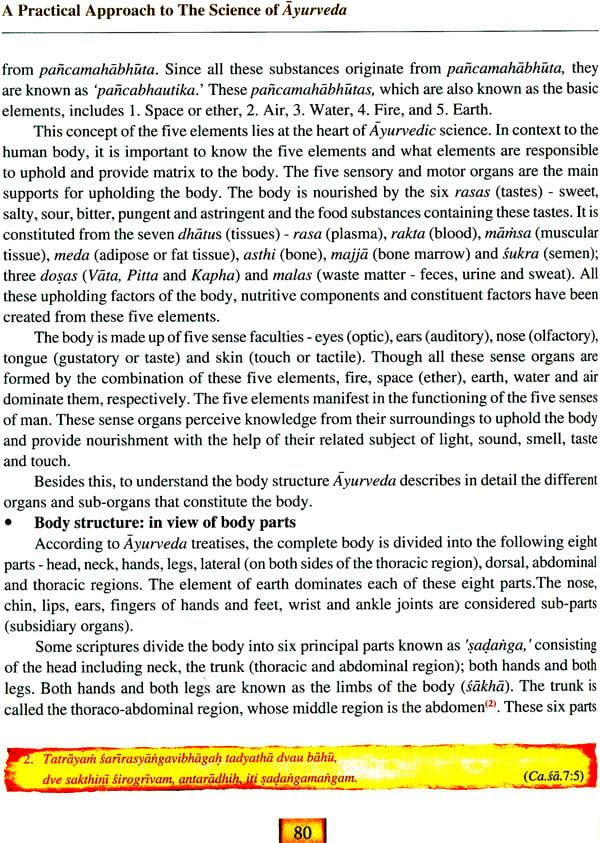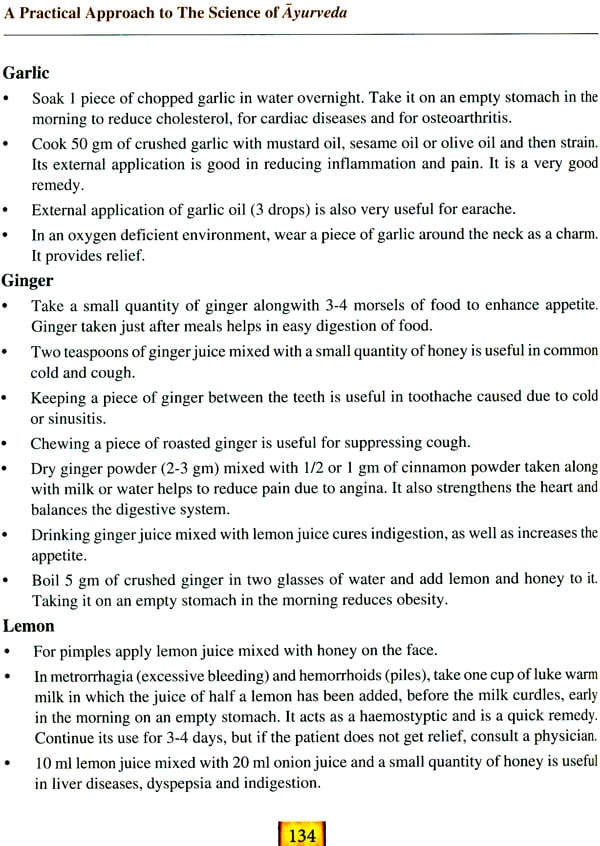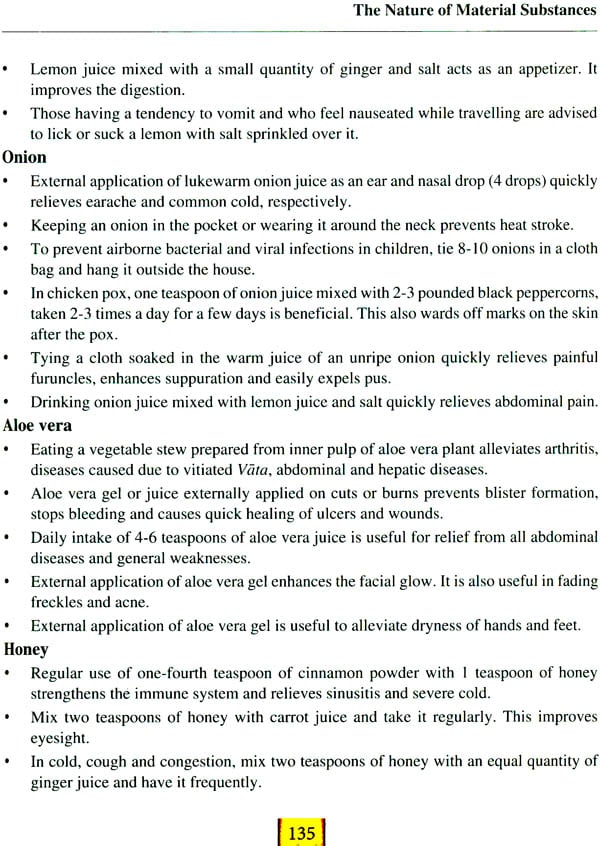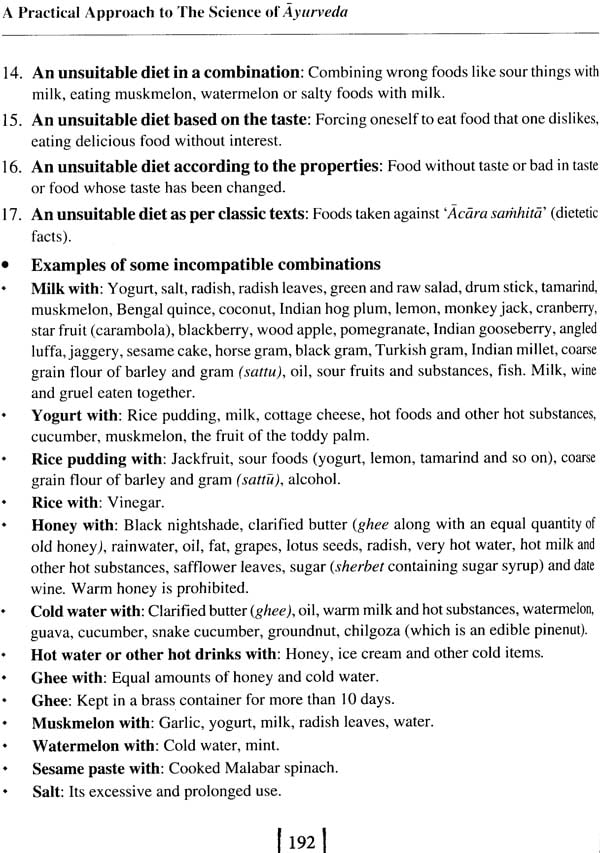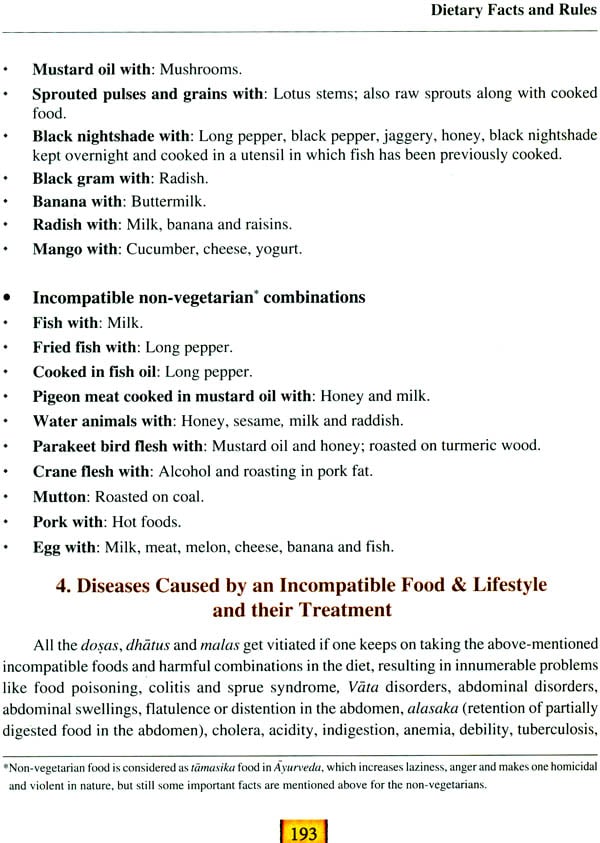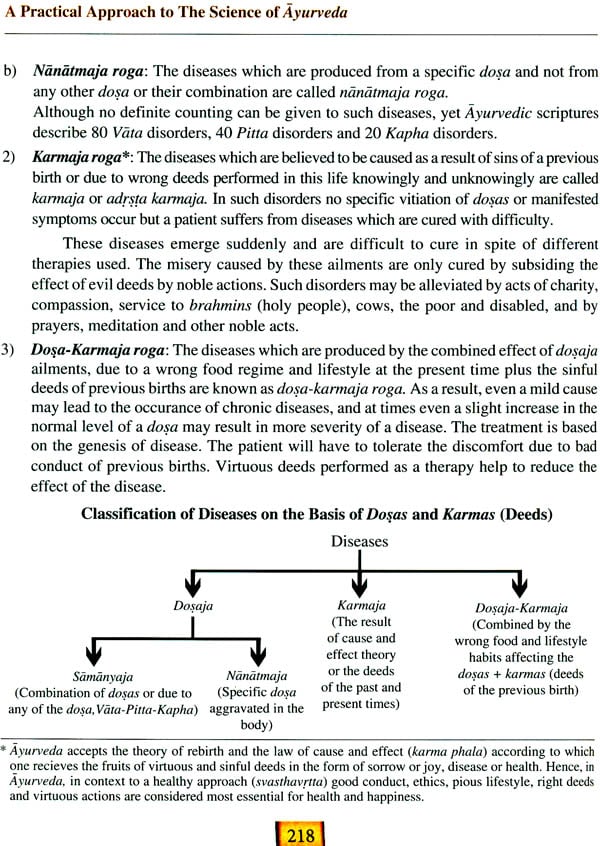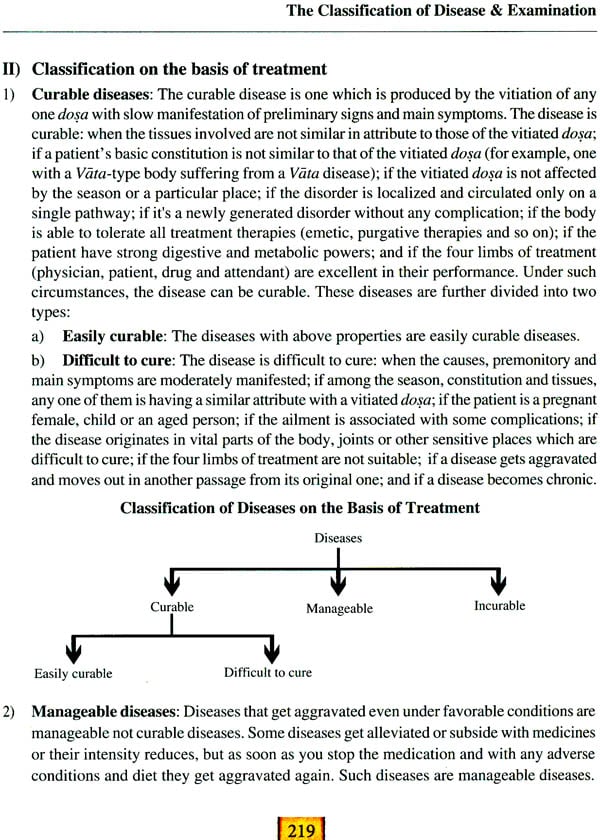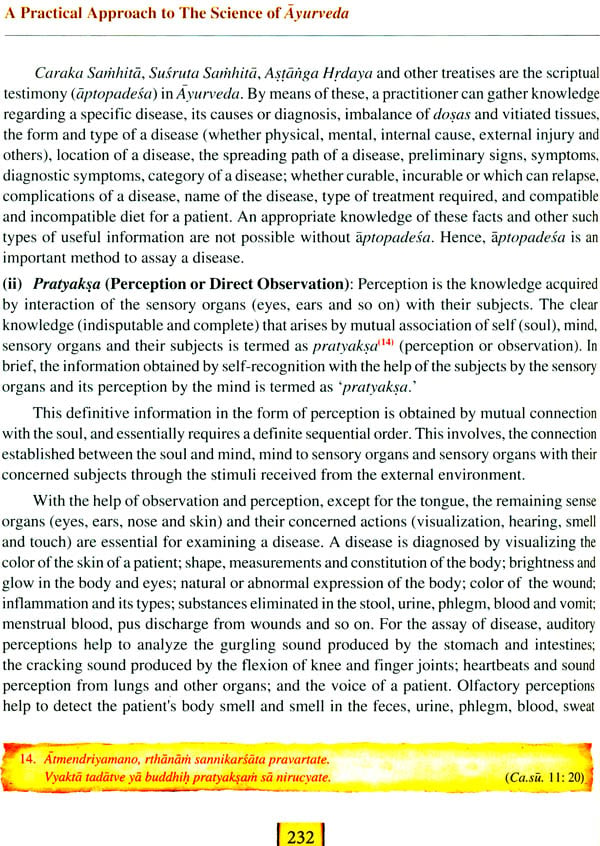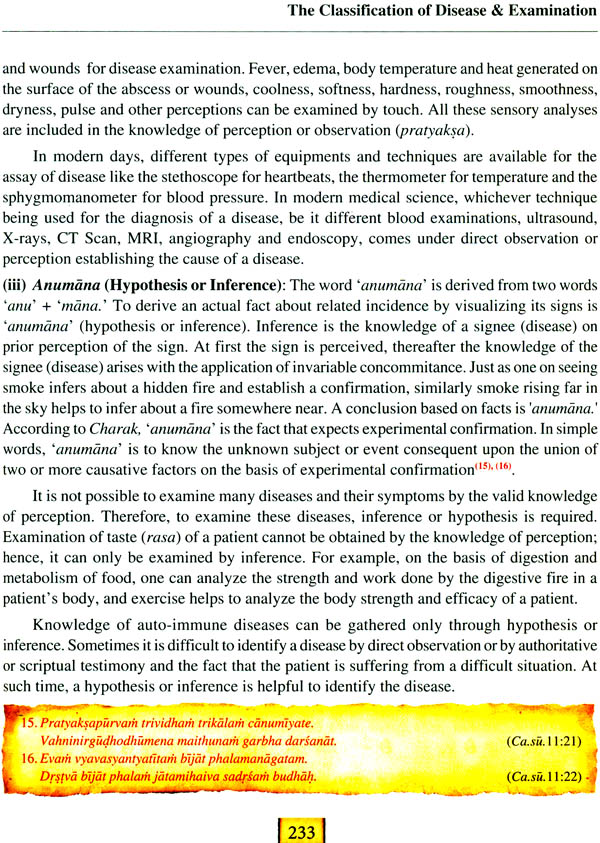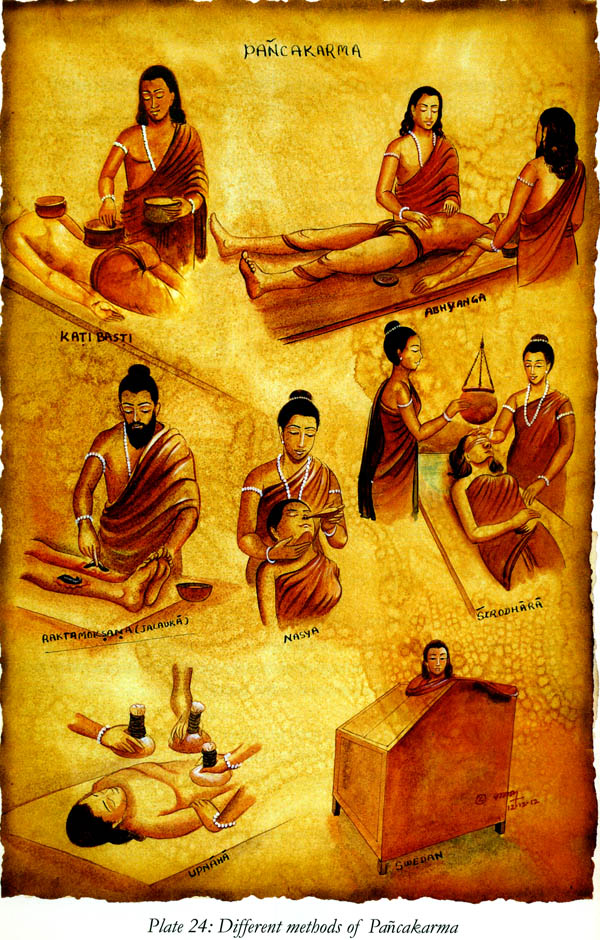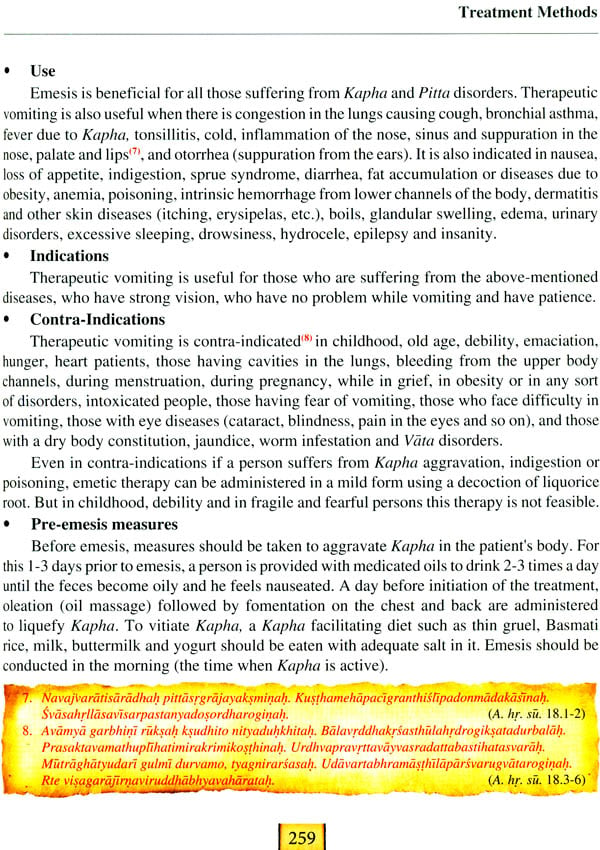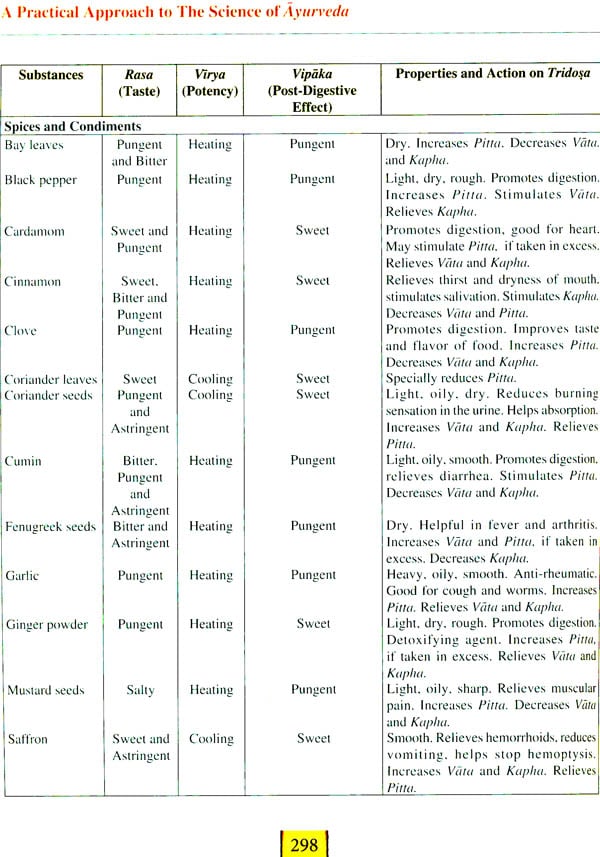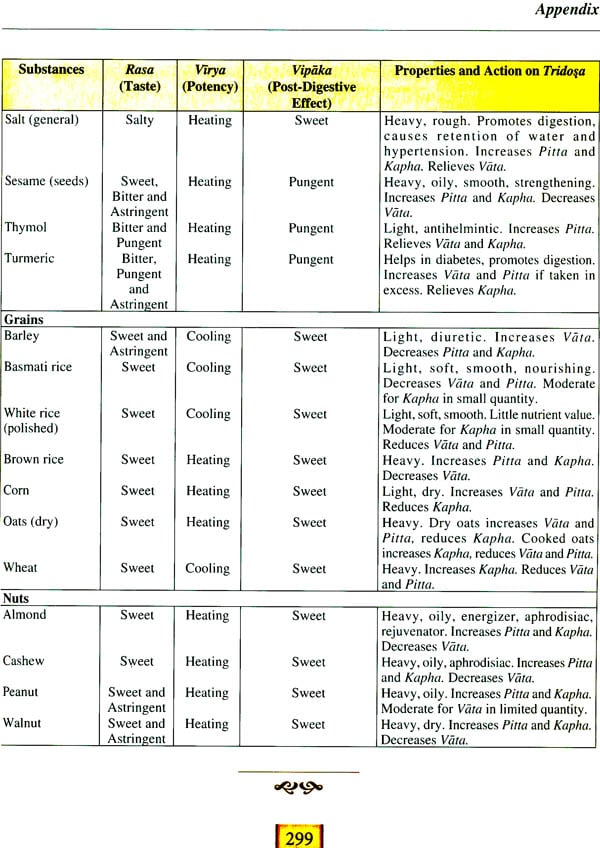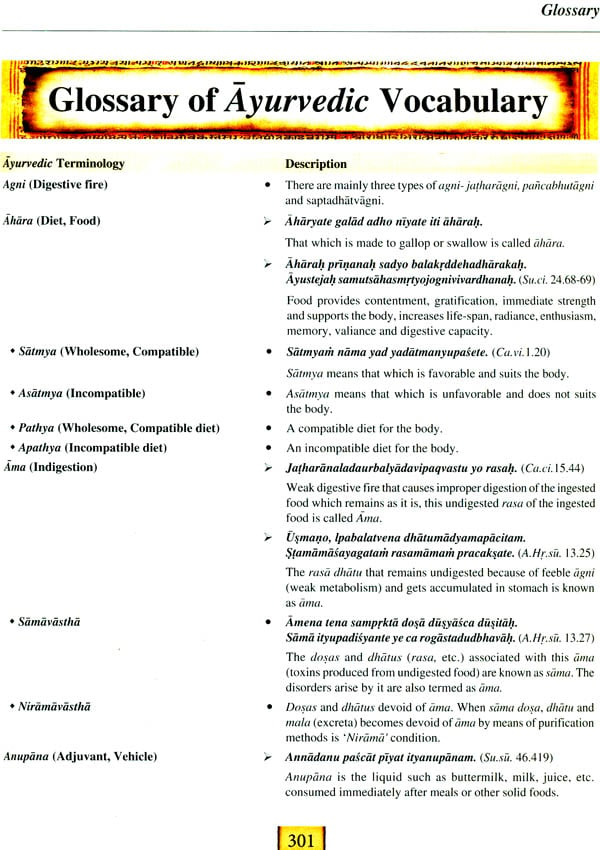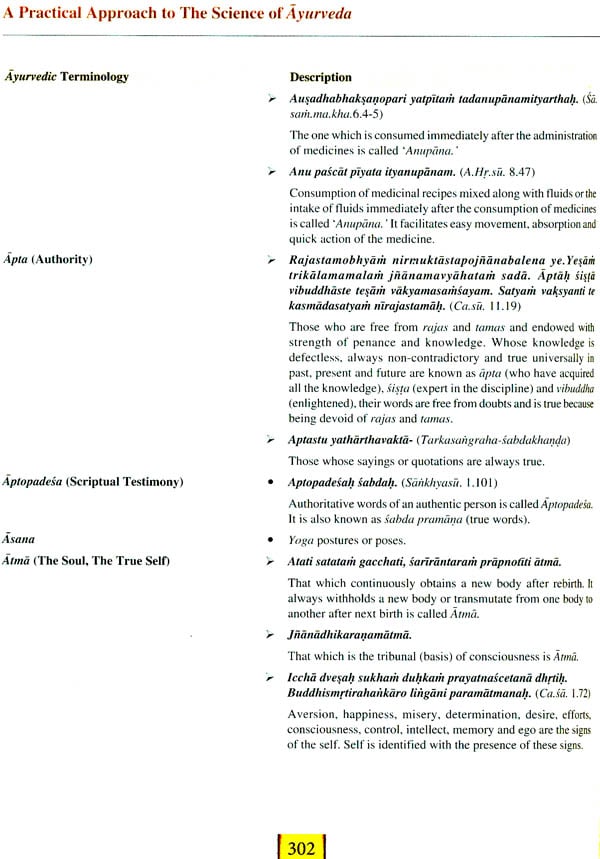
A Practical Approach to The Science of Ayurveda (A Comprehensive Guide for Healthy Living)
Book Specification
| Item Code: | NAG170 |
| Author: | Acharya Balkrishna |
| Publisher: | Divya Prakashan, Haridwar |
| Language: | English |
| Edition: | 2013 |
| ISBN: | 9788189235888 |
| Pages: | 359 (Throughout Color Illustrations) |
| Cover: | Paperback |
| Other Details | 9.5 inch X 7.5 inch |
| Weight | 850 gm |
Book Description
The present book ‘A Practical Approach to The Science of Ayurveda’ highlights the basic principles of the World’s oldest medicine system, Ayurveda in a simple and easy language with complete facts, full authenticity and scientific approach.
It is a high-quality, research-based scripture with all scientific facts and universal principles to establish a balance between the mind and the body in relation with individual constitution so as to achieve complete health and disease-free life on both grounds, physical and psychological.
For an easy understanding of Ayurvedic principles and an ancient outlook, about 29 handmade images have been added which represents a new approach for the first time in Ayurvedic scirptures to present Ayurvedic concepts in aesthetic and vibrant way following the traditional ancient Indian Mural Paintings in a scientific manner.
The book also present the author’s self-experienced Ayurvedic remedies for different diseases along with correct diet and lifestyle regime with respect to different seasons. It reflects how this ancient wisdom could be applied to everyday’s life. it focuses on the methods of Yogasadhana and clarifies the concept of ‘Astacakra’ in a new and scientific approach. Also resolves the controversy related to the number of cakras with full evidences in a simple and practical way. It teaches a step-by-step program to refine the mind and restore the fitness of the body.
Following all the methods and remedies in the daily regime results in transformation and rejuvenation of health. This unique Ayurvedic health guide will enrich and revolutionize the concept of health care system throughout the globe. By adapting these remedies in daily life, the health budget of the family can be minimized to zero percent, which will create an ideal record.
A savant and a great saint of the spiritual tradition of Yoga and Ayurveda in India, Acharya Balkrishna, is involved in renovation, propagation and establishment of Ayurveda, authentically. Acharyaji is a representative of a saintly tradition in whom the knowledge of Maharsi Caraka, Susruta, Dhanvantari and all other saints of Ayurvedic tradition is completely and intimately compounded. Acharya Balkrishna is a great scholar under whose guidance Ayurvedic treatments and Research has been globally established gloriously, with no government aid. With his efforts he has scored 29 patents on Yoga and Ayurveda and under his guidance 41 research papers have been published in several National and International Journals and Magazines. Acharya Balkrishna has received innumerous awards like “Vanaushadhipandit”, “Sugyanshri” etc. for his contributions in the field of Yoga and Ayurveda. Famous magazines like “India Today” (Nov 2009) and “Outlook” (Jan 2010) counts him among the ten versatile and dynamic young man of India. He has authored many books on Yoga and Ayurveda and has edited many scriptures from unpublished Ayurvedic manuscripts. A famous scripture on Ayurvedic treatment ‘Aushad Darshan’, whose more than 50 lakh copies have been sold, is also a unique creation by him. At present his dream project ‘World Herbal Encyclopedia’ is under publication. Acharyaji’s famous Television program on several channels has revived the interest in using plants for medicinal purposes and also the interest in using plants for medicinal purposes and also the interest in Ayurveda, globally. He is a great visionary, highly ascetic, energetic, diligent, simple, easy-going and a versatile personality with multi-dimensional skills who is constantly engaged in the service of mankind. World’s largest food processing unit, ‘Patanjali Food and Herbal Park’ is the result of his innovative vision. He is the inspiration and designer behind the construction of huge and highly modernized Divya Pharmacy and Patanjali Ayurveda Ltd. Formation of Patanjali Bio-Research Institute (PBRI) aiming for the conservation of Nature and Environment and development of organic farming for pollution-free soil, is also the materialization of his ideology. He is an associate of Swami Ramdev, who is one among himself and the chief architect of all the organizations under Patanjali Yogpeeth and Divya Yog Mandir. Establishment of world-class, well-organized, well-equipped Hospitals, Yog Bhavan, Laboratories and other huge infrastructures are examples of his visionary power and initiative. Besides, he is the founder of Patanjali University, Patanjali Ayurveda College, Acharyakulam Educational Institute and Vaidik Gurukulam. He is one of the renowned and pioneer Indian in the field of Ayurvedic Science and a source of inspiration for patriotic Indians.
| Chapter 1 | An Introduction to Ayurveda | 1-15 |
| 1 | What Ayurveda Signifies | 1 |
| 2 | Unique Features of Ayurvedic Treatment | 3 |
| 3 | Ayurveda and its Diversified Areas | 11 |
| 4 | Astanga Ayurveda: The Eight Branches of Ayurveda | 11 |
| Chapter 2 | Fundamentals of Ayurveda | 16-77 |
| 1 | Pancamahabhuta (The Five Basic Elements) and Ayurveda | 16 |
| 2 | The Principle of Tridosa: The Three Biological Humors | 17 |
| 3 | Prakrti: Know Your Constitution | 41 |
| 4 | Traiyopastambha: Three Supporting Pillars of the Body | 47 |
| 5 | Saptadhatu: The Seven Fundamental Tissues | 51 |
| 6 | Ojas: The Vital Essence | 58 |
| 7 | Upadhatus: Sub-Tissues | 60 |
| 8 | Mala: Waste Matter or Excretory Products | 61 |
| 9 | Digestion and Metabolism | 65 |
| 10 | Physical Strength | 71 |
| 11 | Srotas: Body Channels | 74 |
| Chapter 3 | The Body and its Vital Forces | 79-107 |
| 1 | Tridanda: The Three Dimensions of Life -Body, Mind (Psyche) and Soul | 79 |
| 2 | Panca Pancaka: The Five Pentads | 86 |
| 3 | Pancakosa: The Five Spiritual Body Sheaths | 89 |
| 4 | Body Physiology and Astacakra: The Eight Cakras | 95 |
| 5 | Astacakra and its Relation with Various Yogic Practices and Kundalini Yoga | 103 |
| Chapter 4 | The Nature of Material Substances | 108-136 |
| 1 | Rasa: Taste | 109 |
| 2 | Guna: Attributes | 118 |
| 3 | Virya: Potency | 120 |
| 4 | Vipaka: Post-Digestive Effect | 121 |
| 5 | Prabhava: Specific Action | 123 |
| 6 | Types of Substances According to their Actions | 124 |
| 7 | Food-Lifestyle, Important Diseases and their Best Remedies | 126 |
| 8 | Home Remedies from the Kitchen Pharmacy | 131 |
| Chapter 5 | Health Horizons - An Ayurvedic Approach to a Healthy Life | 137-181 |
| 1 | Dinacarya: Food Habits and Conduct during the Day Time | 137 |
| 2 | Ratricarya: Food Habits and Conduct at Night | 153 |
| 3 | Improper Lifestyle: The Major Cause of Obesity and Emaciation | 157 |
| 4 | Rtucarya: Food Habits and Conduct during Different Seasons | 161 |
| 5 | Suppression of Natural Urges: Unretainable Urges | 176 |
| 6 | Dharaniya Vega: Retainable Urges | 180 |
| Chapter 6 | Dietary Facts and Rules | 183-197 |
| 1 | Facts About Food | 183 |
| 2 | A Compatible Diet | 189 |
| 3 | Unfavorable Foods and Combinations | 190 |
| 4 | Diseases Caused by an Incompatible Food and Lifestyle and their Treatment | 193 |
| 5 | Favorable Foods and Combinations | 197 |
| Chapter 7 | The Characteristics of Important Liquids and their Adjuvants (Anupana) | 198-216 |
| 1 | Water | 200 |
| 2 | Coconut Water | 204 |
| 3 | Milk | 205 |
| 4 | Yogurt | 207 |
| 5 | Buttermilk | 209 |
| 6 | Butter | 210 |
| 7 | Ghee (Clarified Butter) | 211 |
| 8 | Oil | 212 |
| 9 | Honey | 215 |
| Chapter 8 | The Classification of Disease and Examination | 217-250 |
| 1 | Classification of Diseases | 217 |
| 2 | Four Legged Frame of Treatment (Four Important Factors in the Treatment of Disorders) | 227 |
| 3 | Methods to Assay the Cause of a Disease | 231 |
| 4 | Different Methods of Disease Examination | 235 |
| Chapter 9 | Treatment Methods | 251-278 |
| 1 | Different Methods of Treatment in Ayurveda | 253 |
| 2 | A General Introduction to Pancakarma Treatment | 257 |
| 3 | Rasayana Cikitsa: Rejuvenation Therapy | 266 |
| 4 | Vajikarana: Treatment for Infertility and Virility - The Science of Healthy Procreation | 275 |
| Chapter 10 | Yoga Therapy and Ayurveda | 279-291 |
| 1 | Theoretical Similarities in the Principles of Yogasastra and Ayurvedic Treatises | 280 |
| 2 | Importance of Yoga in the Treatment of Ayurveda | 281 |
| 3 | Relationship Between Tridosa and Alleviation of Diseases Through Yoga | 283 |
| 4 | Effective Solutions and Sources to Obtain Good Health | 285 |
| Appendix | 292-300 | |
| Glossary | 301-333 | |
| A Glimpses of Major Writings by the Author | 334-338 |
